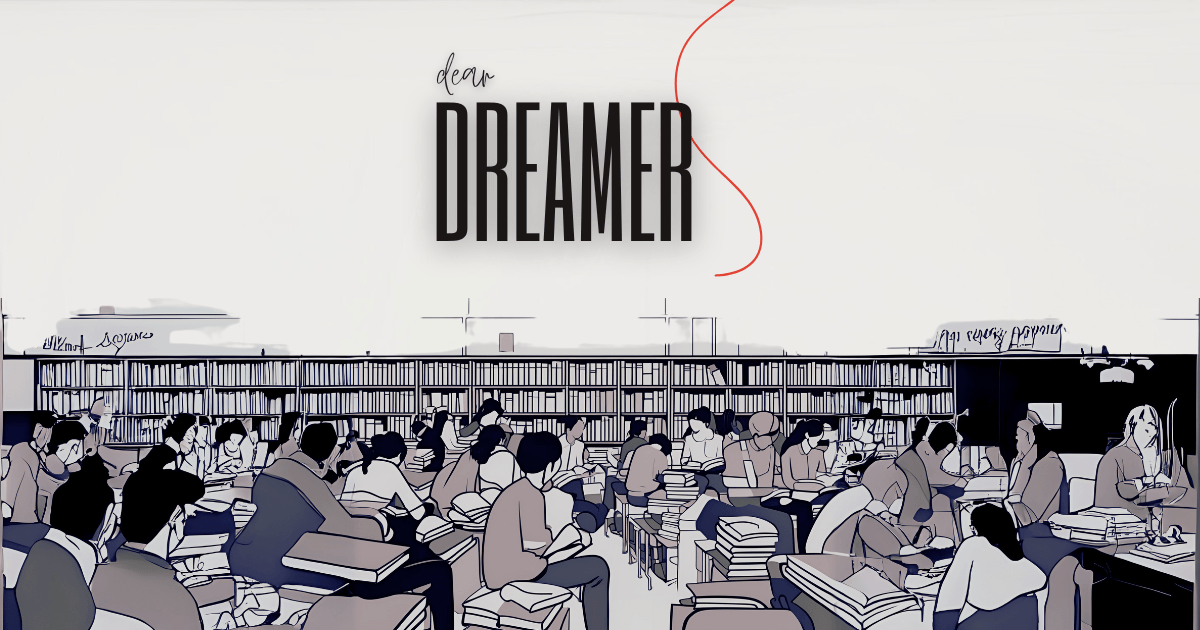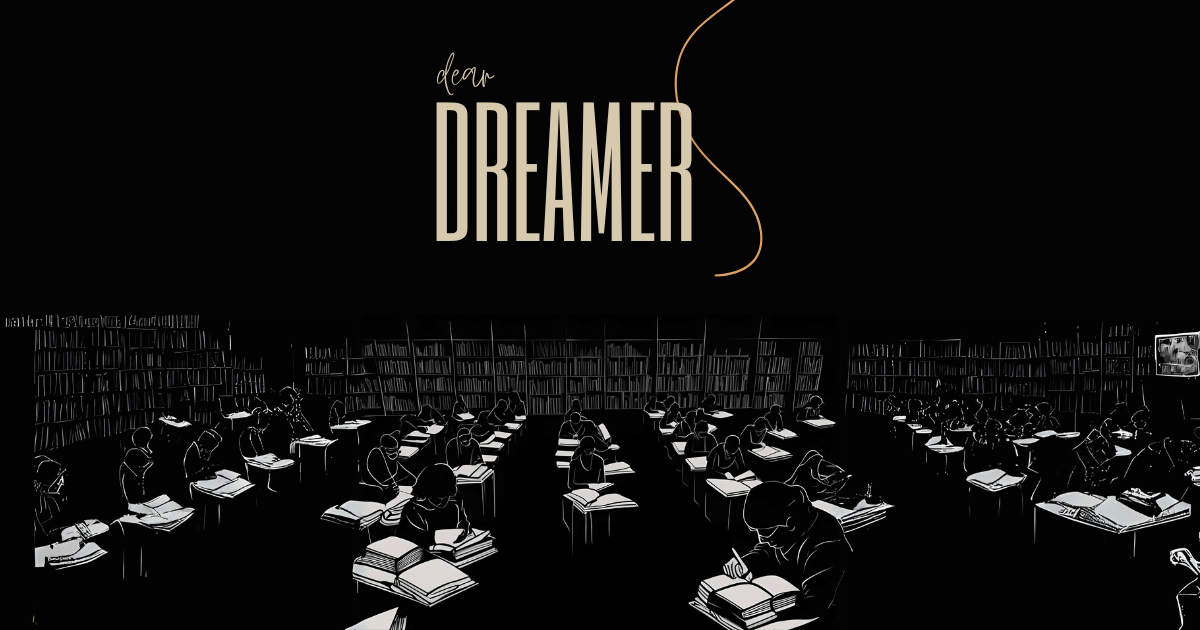November 24, 2024
The Silent Struggle of Dreamers (Why Your Reality Feels Split)


The Leveraged Dreamer ↩
In the past few decades, we've seen a wave of technological innovations that have deeply integrated with us. Many individuals who once felt trapped in corporate roles are now leveraging their expertise and skillsets to create their own paths. The rise of Gen Z is echoing throughout traditional corporate channels.
You, as an individual, now have more control over time and your life direction.
And with more control, the responsibilities grow. And the responsibilities of your own life help you stay dedicated to achieving whatever you set your mind to. You will take all the credit for your achievements and bear the stakes for any faults.
But the ultimate reality is this: the world is in favor of you, dreamer.
The internet has opened doors to a wide variety of new opportunities. Almost everybody is in a hustle, trying to capture their place on the internet and create leverage. More leverage leads to more authority, authenticity, and eventually wealth.
Remember I mentioned you as a dreamer. Why?
Look outside. Look up at the sky. Look back at memories of your last vacation. Look at the feed you scroll through on your socials.
What do all of these things have in common?
Things you don’t have.
Things that exist outside your immediate control.
And then, something within you motivates you to pursue, to control, and to possess what you don’t have—because you believe it could help you survive or thrive.
As a dreamer, you and I will see the good side of things, and eventually, those dreams will come true in our lives.
As I go out daily, I see the faces of many dreamers. I kind of sense their nature or orientation toward life as I’ve become more observant of people. I notice dreamers who are:
- Tired but still trying,
- Ambitious but too lazy to act,
- And rarely, the driven Gen Z that I see on social media and in achievement stories.
Of course, I'm not a "face reader" or a magician who can know someone’s story just by looking at them. So, I approached some to hear their stories—but our conversations quickly turned into a discussion about their worries.
The Conversation
After spending some time with them, I understood they were dissatisfied with themselves. I tried to analyze their thinking pattern.
Me: What does a satisfactory life look like for you after graduation?
He/Him: I need a job.
Me: What kind of salary are you aiming for?
He/Him: I barely know how to code, I’ll take whatever I can get.
Me: Why don’t you try harder?
He/Him: Everyone’s preaching the same thing, but…
Me: But what?
He/Him: We don’t have time to practice or improve our skills.
The deeper I reflected on their responses, the more I realized they were frustrated and complaining.
They disapproved of their parents, who focus solely on grades and achievements while neglecting personal growth and emotional well-being.
They felt disappointed in themselves, believing their efforts weren’t leading anywhere. They blamed themselves for not moving forward, creating a cycle of self-doubt.
Some also resented their peers. They talked about how some students are selfish or rude, discouraging others by looking down on them. This created a sense of isolation.
Finally, there was a fear of falling behind. They were terrified that others would surpass them, leaving them behind, unnoticed and unsuccessful. This fear of being left out only added to their anxiety, making them question if they were on the right path.
In the end, they concluded that, no matter how much they were paid, they were ready to become slaves (unconsciously) just to satisfy the expectations of others.
Then I realized the dreamers are solely in dreams and forgot to look down.
Have You Heard of the Broken Window Theory?
It’s pretty fascinating. In a nutshell, there was an experiment done where they studied 2 different environments: one with intentionally broken windows and one that looked clean and tidy.
In the area where they installed new windows and cleaned the area up, crime decreased by ~50%. In the area where they broke windows and created a mess, crime increased.
Why does this happen?
Because your environment heavily conditions your behavior.
The New Form Of Social Conditioning
By known or unknown means, we are conditioned heavily from the time we’re born. We're taught how to think, behave, and perceive the world based on the systems we grow up in—whether it’s family, school, or media.
These systems have specific rules that shape our views and actions. They essentially teach us what’s "normal" and what’s not.
Again, discussing systems thinking is for another talk, but the takeaway is this: you are always being influenced by someone dictating this system in louder frequencies that your ears can’t catch.
The larger systems might be political leaders, the media, and the education system that teaches you to think in linear, structured ways. Your actions are all controlled.
When social media started, it created a glitch in the largely built societal systems. It opened a free flow of information and opinions.
Small like-minded people who understand the suppression they face are forming tribes. These tribes are growing, now as big as a societal system, and have the power to form an e-societal system.
The Digital Confusion
If you keenly think, the goals you are willing to pursue are not always yours. They’re influenced by information that went viral in a day or less and dropped in your feed. Your dreamer instinct motivates you to pursue them, believing they could help you survive or thrive.
Social media is the modern engine of social conditioning.
This all may sound confusing, I know. Because thinking about it does that to me too. To put it simply:
You are living in a bisected era where the Societal System and Social Media are acting upon you simultaneously.
- You hate your parents because you know grades aren’t everything, but they don’t.
- You hate the education system because they waste your time and leave you unskilled.
- You hate your peers because they’re selfish (which is part of their survival) and don’t help you get into the game.
- You hate yourself because you see people achieving, but you aren’t.
Digital environments shape our minds much faster than physical ones because there’s so much information coming at us. Whenever you see new information, the dreamer instinct within releases dopamine in your brain. The bisected systems create echoes of doubt, leading to entropy, which kills your interest and burdens you with self-blame.
But many people are achieving, aren’t they?
So, why can’t you?
The reality is: not everyone is the same.
People you might come across with XYZ achievement may have put in hard work, but surely they also have leverage—either individual abilities or resources (time/money) that helped them excel in a particular skill.
A person good at logical thinking might excel at competitive exams.
A person with financial leverage might afford the best coaching.
The key is finding your balance.
Know Your Limitations and Capabilities
Now, stand up and look down. What do you see? Everything inside your peripersonal space. Things within reach. Things you can control. Your immediate space is where you can savor, enjoy, or even fight against what you’re experiencing.
Think back: When did you last take a challenge or goal not just to dream about, but to consider your reality?
The student I spoke with began to reflect on his situation, but his complaints turned into excuses:
- His parents aren’t ready to spend money on coaching, but his friends are attending.
- His friends won’t teach him when he asks.
- His lecturers overload him with work, leaving no time to learn online.
- Even if he had time, he feels he lacks the capability, like logical reasoning or analytics.
- He says, “If I can’t do C language, what else can I do?”
These complaints indulge the ego.
This is why I emphasize systems thinking—when you understand the systems and how they’re made, you’ll see how the educational system traps you by limiting exposure to selective channels.
And then, it’s easier to understand the harsh reality:
- You hate the way things are, but can’t break free from them.
- You dislike people around you, but can’t hold them responsible.
- You even hate yourself, but can’t disconnect from who you are.
You must be smart enough to know your limitations and capabilities. If you have financial freedom, you can take value from others. If you have good capabilities but less financial freedom, you can still grow by seeking opportunities to develop your skills.
The world has already validated your limitations. The capabilities are discoverable, and they are timely.
You can iterate through multiple things to discover your strengths and weaknesses. Education can’t do this for you.
If you are carrying a label of Computer Science Graduate you are not necessarily bound to doing something in the same field.
The world has changed, there are infinite possibilities to explore.
You can be a sales person, marketing person, freelancer, editor, content creator, copy writer, entrepreneur, financial advisor, stock market expert, artist.
The world is not a problem; the problem is your unawareness.
The world has changed. There are infinite possibilities to explore.
You might feel like I’m complaining about the educational system, but what I’m doing is exposing how these systems influence individuals like you and me.
Be extremely aware of the truth: Systems are powerful. I alone can’t break them. Manipulating them will take ages. But the escape is at your fingertips.
Don’t get caught in learning C.
If you can’t ‘C’, see what the rest of the world does. The world knows the demand isn’t just for 'C'—it’s for the skills that pay.
Accepting your current reality—without delusion or denial—is the first step toward taking control of your life and making meaningful progress instead of constantly chasing an idealized version of success.
And your problems will persist until you realize, analyze, and take action—not by complaining or escaping your reality.
Don’t let your ego dictate your relationship with your parents or the challenges around you. Sometimes, the people closest to us are not the problem—they are reflections of the systems that shaped us.